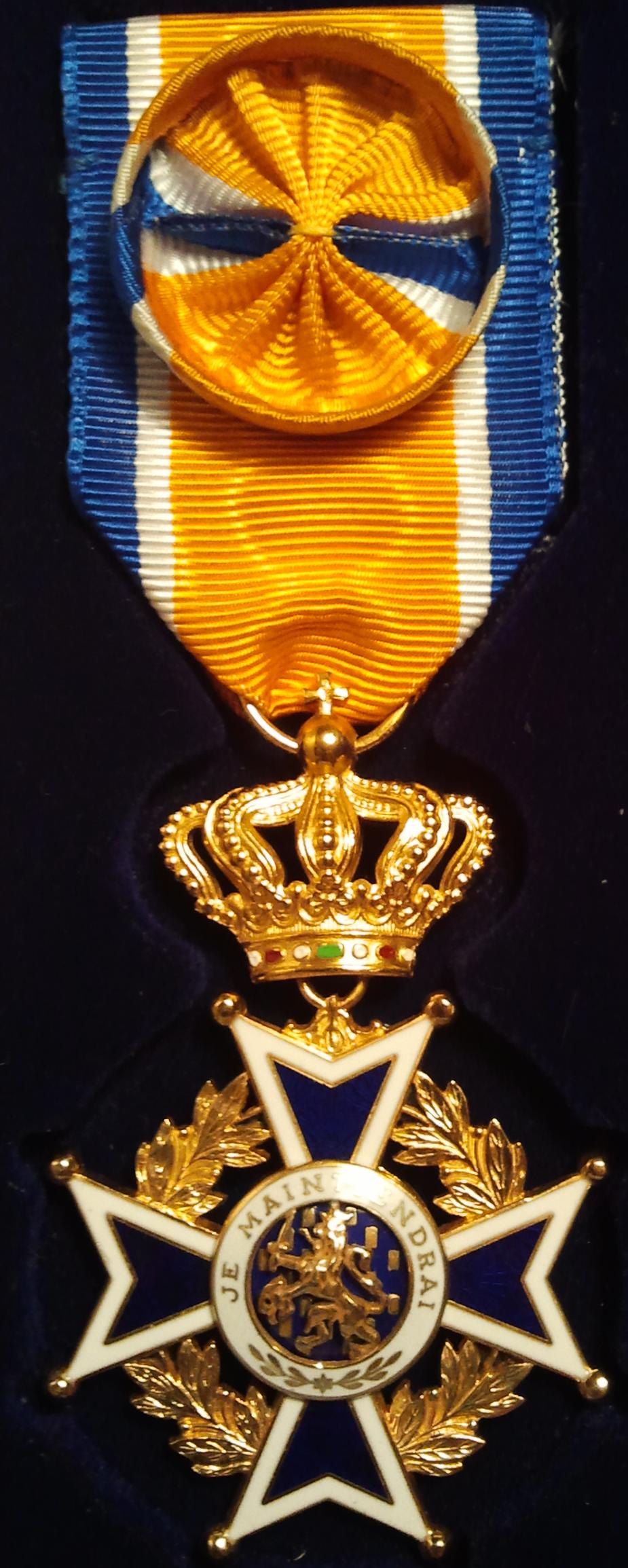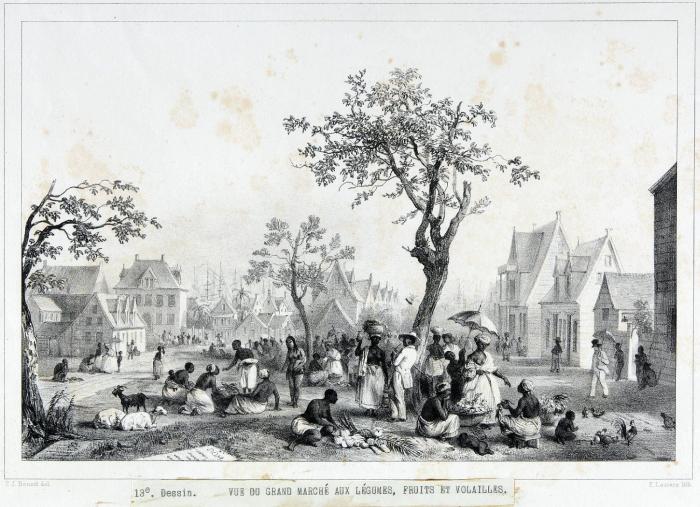|
Johannes Brons
Johannes Cornelis Brons (6 August 1884 – 12 May 1964) was a judge, Governor of Suriname from 1944 until 1948, and President of the High Court of Justice of Suriname. Biography Brons was born on 6 August 1884 in The Hague. He studied law at Leiden University, and received his doctorate in 1909. Between 1909 and 1926, he worked as a lawyer and prosecutor in Rotterdam. In 1926, Brons went to Suriname, served on the High Court of Justice of Suriname, and became the president of the court in 1929. He served until 1943. In 1930, he was elected to the Colonial Estates, and subsequently became its President. In 1935, he resigned from the Estates. Brons served as Acting Governor-General of Suriname from 16 August 1935 until 12 April 1936, September 1938 until January 1939, and again on 3 January 1944. On 26 July 1944, he was officially appointed Governor, and served until 5 July 1948. During his tenure as governor, Brons tried to reform suffrage which was limited to wealthy men. His f ... [...More Info...] [...Related Items...] OR: [Wikipedia] [Google] [Baidu] |
List Of Colonial Governors Of Suriname
This is a list of colonial governors of Suriname, a country in northern South America. It borders French Guiana to the east, Guyana to the west, Brazil to the south, and the Atlantic Ocean to the north. Suriname was first colonized by the British, and captured by the Dutch in 1667, who governed it as Surinam until 1954. The country of Suriname achieved independence from the Kingdom of the Netherlands on 25 November 1975. List of governors Italics indicate ''de facto'' continuation of office See also * Politics of Suriname * President of Suriname * First Lady of Suriname * Vice President of Suriname * List of prime ministers of Suriname * List of deputy prime ministers of Suriname External links * World Statesmen - Suriname {{Suriname topics Colonial governors Suriname Suriname (; srn, Sranankondre or ), officially the Republic of Suriname ( nl, Republiek Suriname , srn, Ripolik fu Sranan), is a country on the northeastern Atlantic coast of South Ame ... [...More Info...] [...Related Items...] OR: [Wikipedia] [Google] [Baidu] |
Order Of Orange-Nassau
The Order of Orange-Nassau ( nl, Orde van Oranje-Nassau, links=no) is a civil and military Dutch order of chivalry founded on 4 April 1892 by the queen regent, Emma of the Netherlands. The order is a chivalric order open to "everyone who has performed acts of special merits for society.” These are people who deserve appreciation and recognition from society for the special way in which they have carried out their activities. Titles, prefixes, or post-nominals are not used in the Netherlands – the only exception being the Military William Order. History In 1841 William II of the Netherlands, as Grand Duke of Luxembourg, created the Order of the Oak Crown. Although this was officially not a Dutch order, honours were regularly conferred on Dutch people. After the death of William III, Luxembourg, according to the Nassau Family Pact, became the domain of the other branch of the House of Nassau. In the Netherlands the need for a third order, beside the Military Willia ... [...More Info...] [...Related Items...] OR: [Wikipedia] [Google] [Baidu] |
Leiden University Alumni
Leiden (; in English and archaic Dutch also Leyden) is a city and municipality in the province of South Holland, Netherlands. The municipality of Leiden has a population of 119,713, but the city forms one densely connected agglomeration with its suburbs Oegstgeest, Leiderdorp, Voorschoten and Zoeterwoude with 206,647 inhabitants. The Netherlands Central Bureau of Statistics (CBS) further includes Katwijk in the agglomeration which makes the total population of the Leiden urban agglomeration 270,879, and in the larger Leiden urban area also Teylingen, Noordwijk, and Noordwijkerhout are included with in total 348,868 inhabitants. Leiden is located on the Oude Rijn, at a distance of some from The Hague to its south and some from Amsterdam to its north. The recreational area of the Kaag Lakes ( Kagerplassen) lies just to the northeast of Leiden. A university city since 1575, Leiden has been one of Europe's most prominent scientific centres for more than four centuri ... [...More Info...] [...Related Items...] OR: [Wikipedia] [Google] [Baidu] |
Surinamese Judges
Surinamese may refer to: * Something of, from, or related to the country of Suriname * A person from Suriname, or of Surinamese descent. For information about the Surinamese people, see: ** Surinamese people ** Demographics of Suriname ** Culture of Suriname *Sranan Tongo Sranan Tongo (also Sranantongo "Surinamese tongue," Sranan, Surinaams, Surinamese, Surinamese Creole) is an English-based creole language that is spoken as a ''lingua franca'' by approximately 550,000 people in Suriname. Developed originally amo ..., the creole language spoken in Suriname as a ''lingua franca'' {{Disambiguation Language and nationality disambiguation pages ... [...More Info...] [...Related Items...] OR: [Wikipedia] [Google] [Baidu] |
Politicians From The Hague
A politician is a person active in party politics, or a person holding or seeking an elected office in government. Politicians propose, support, reject and create laws that govern the land and by an extension of its people. Broadly speaking, a politician can be anyone who seeks to achieve political power in a government. Identity Politicians are people who are politically active, especially in party politics. Political positions range from local governments to state governments to federal governments to international governments. All ''government leaders'' are considered politicians. Media and rhetoric Politicians are known for their rhetoric, as in speeches or campaign advertisements. They are especially known for using common themes that allow them to develop their political positions in terms familiar to the voters. Politicians of necessity become expert users of the media. Politicians in the 19th century made heavy use of newspapers, magazines, and pamphlets, as well ... [...More Info...] [...Related Items...] OR: [Wikipedia] [Google] [Baidu] |
Lawyers From The Hague
A lawyer is a person who practices law. The role of a lawyer varies greatly across different legal jurisdictions. A lawyer can be classified as an advocate, attorney, barrister, canon lawyer, civil law notary, counsel, counselor, solicitor, legal executive, or public servant — with each role having different functions and privileges. Working as a lawyer generally involves the practical application of abstract legal theories and knowledge to solve specific problems. Some lawyers also work primarily in advancing the interests of the law and legal profession. Terminology Different legal jurisdictions have different requirements in the determination of who is recognized as being a lawyer. As a result, the meaning of the term "lawyer" may vary from place to place. Some jurisdictions have two types of lawyers, barrister and solicitors, while others fuse the two. A barrister (also known as an advocate or counselor in some jurisdictions) is a lawyer who typically specializes ... [...More Info...] [...Related Items...] OR: [Wikipedia] [Google] [Baidu] |
Diplomats From The Hague
A diplomat (from grc, δίπλωμα; romanized ''diploma'') is a person appointed by a state or an intergovernmental institution such as the United Nations or the European Union to conduct diplomacy with one or more other states or international organizations. The main functions of diplomats are: representation and protection of the interests and nationals of the sending state; initiation and facilitation of strategic agreements; treaties and conventions; promotion of information; trade and commerce; technology; and friendly relations. Seasoned diplomats of international repute are used in international organizations (for example, the United Nations, the world's largest diplomatic forum) as well as multinational companies for their experience in management and negotiating skills. Diplomats are members of foreign services and diplomatic corps of various nations of the world. The sending state is required to get the consent of the receiving state for a person proposed to serve ... [...More Info...] [...Related Items...] OR: [Wikipedia] [Google] [Baidu] |
Governors Of Suriname
A governor is an administrative leader and head of a polity or political region, ranking under the head of state and in some cases, such as governors-general, as the head of state's official representative. Depending on the type of political region or polity, a ''governor'' may be either appointed or elected, and the governor's powers can vary significantly, depending on the public laws in place locally. The adjective pertaining to a governor is gubernatorial, from the Latin root ''gubernare''. Ancient empires Pre-Roman empires Though the legal and administrative framework of provinces, each administrated by a governor, was created by the Romans, the term ''governor'' has been a convenient term for historians to describe similar systems in antiquity. Indeed, many regions of the pre-Roman antiquity were ultimately replaced by Roman 'standardized' provincial governments after their conquest by Rome. Plato used the metaphor of turning the Ship of State with a rudder; the Latin w ... [...More Info...] [...Related Items...] OR: [Wikipedia] [Google] [Baidu] |
1964 Deaths
Events January * January 1 – The Federation of Rhodesia and Nyasaland is dissolved. * January 5 - In the first meeting between leaders of the Roman Catholic and Orthodox churches since the fifteenth century, Pope Paul VI and Patriarch Athenagoras I of Constantinople meet in Jerusalem. * January 6 – A British firm, the Leyland Motor Corp., announces the sale of 450 buses to the Cuban government, challenging the United States blockade of Cuba. * January 9 – '' Martyrs' Day'': Armed clashes between United States troops and Panamanian civilians in the Panama Canal Zone precipitate a major international crisis, resulting in the deaths of 21 Panamanians and 4 U.S. soldiers. * January 11 – United States Surgeon General Luther Terry reports that smoking may be hazardous to one's health (the first such statement from the U.S. government). * January 12 ** Zanzibar Revolution: The predominantly Arab government of Zanzibar is overthrown by African nationalist rebels ... [...More Info...] [...Related Items...] OR: [Wikipedia] [Google] [Baidu] |
1884 Births
Events January–March * January 4 – The Fabian Society is founded in London. * January 5 – Gilbert and Sullivan's '' Princess Ida'' premières at the Savoy Theatre, London. * January 18 – Dr. William Price attempts to cremate his dead baby son, Iesu Grist, in Wales. Later tried and acquitted on the grounds that cremation is not contrary to English law, he is thus able to carry out the ceremony (the first in the United Kingdom in modern times) on March 14, setting a legal precedent. * February 1 – ''A New English Dictionary on historical principles, part 1'' (edited by James A. H. Murray), the first fascicle of what will become ''The Oxford English Dictionary'', is published in England. * February 5 – Derby County Football Club is founded in England. * March 13 – The siege of Khartoum, Sudan, begins (ends on January 26, 1885). * March 28 – Prince Leopold, the youngest son and the eighth child of Queen Victoria ... [...More Info...] [...Related Items...] OR: [Wikipedia] [Google] [Baidu] |
Paramaribo
Paramaribo (; ; nicknamed Par'bo) is the capital and largest city of Suriname, located on the banks of the Suriname River in the Paramaribo District. Paramaribo has a population of roughly 241,000 people (2012 census), almost half of Suriname's population. The historic inner city of Paramaribo has been a UNESCO World Heritage Site since 2002. Name The city is named for the Paramaribo tribe living at the mouth of the Suriname River; the name is from Tupi–Guarani ''para'' "large river" + ''maribo'' "inhabitants". History The name Paramaribo is probably a corruption of the name of an Indian village, spelled Parmurbo in the earliest Dutch sources. This was the location of the first Dutch settlement, a trading post established by Nicolaes Baliestel and Dirck Claeszoon van Sanen in 1613. English and French traders also tried to establish settlements in Suriname, including a French post established in 1644 near present-day Paramaribo. All earlier settlements were abandoned ... [...More Info...] [...Related Items...] OR: [Wikipedia] [Google] [Baidu] |






